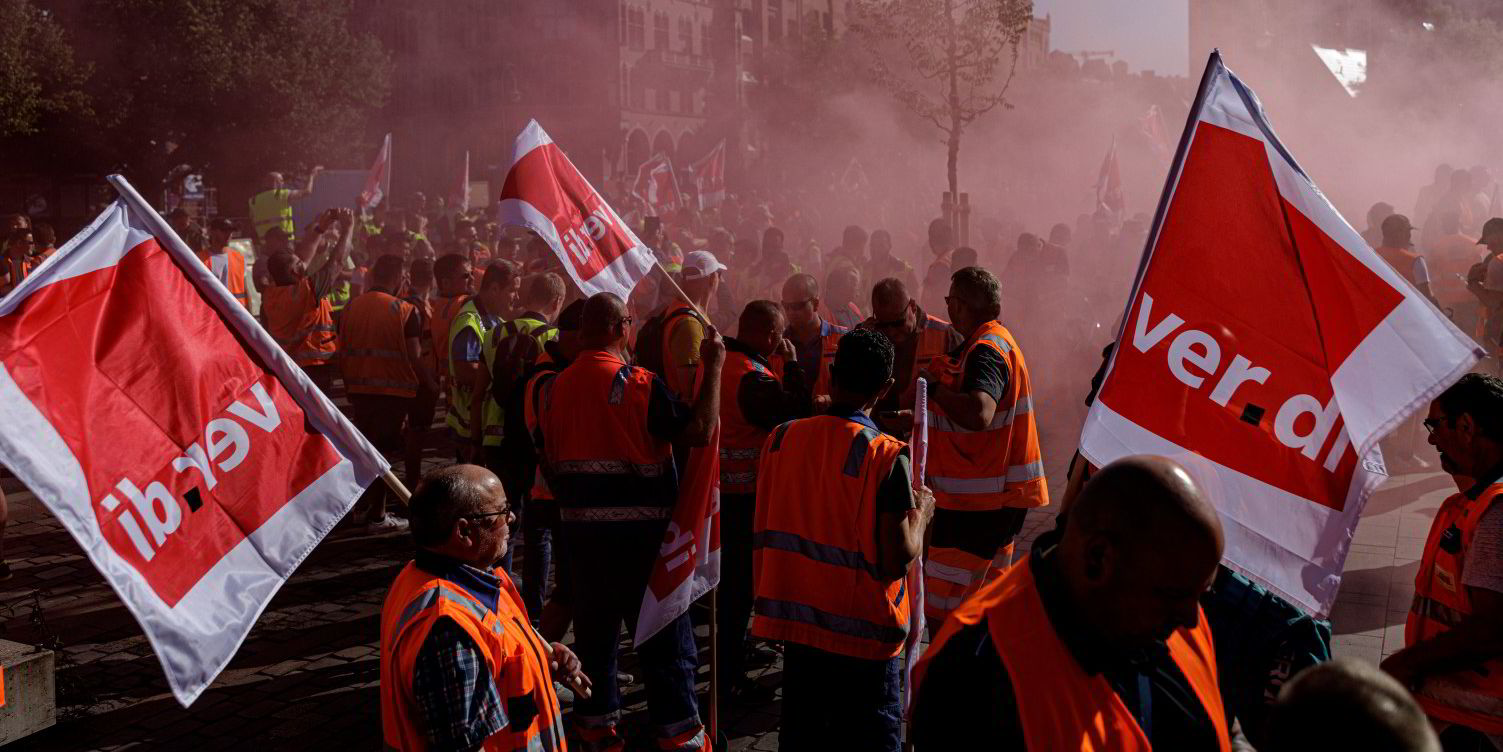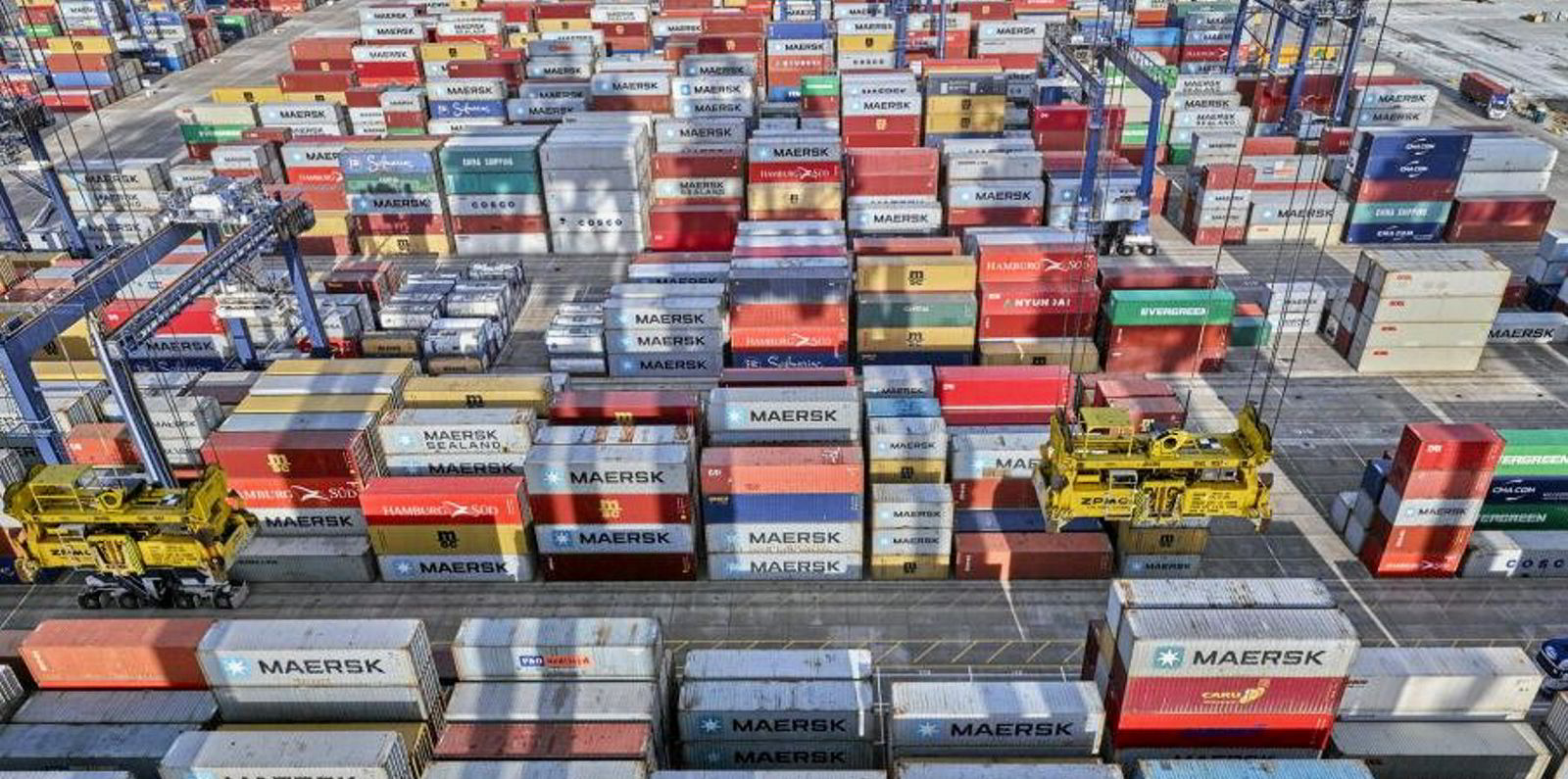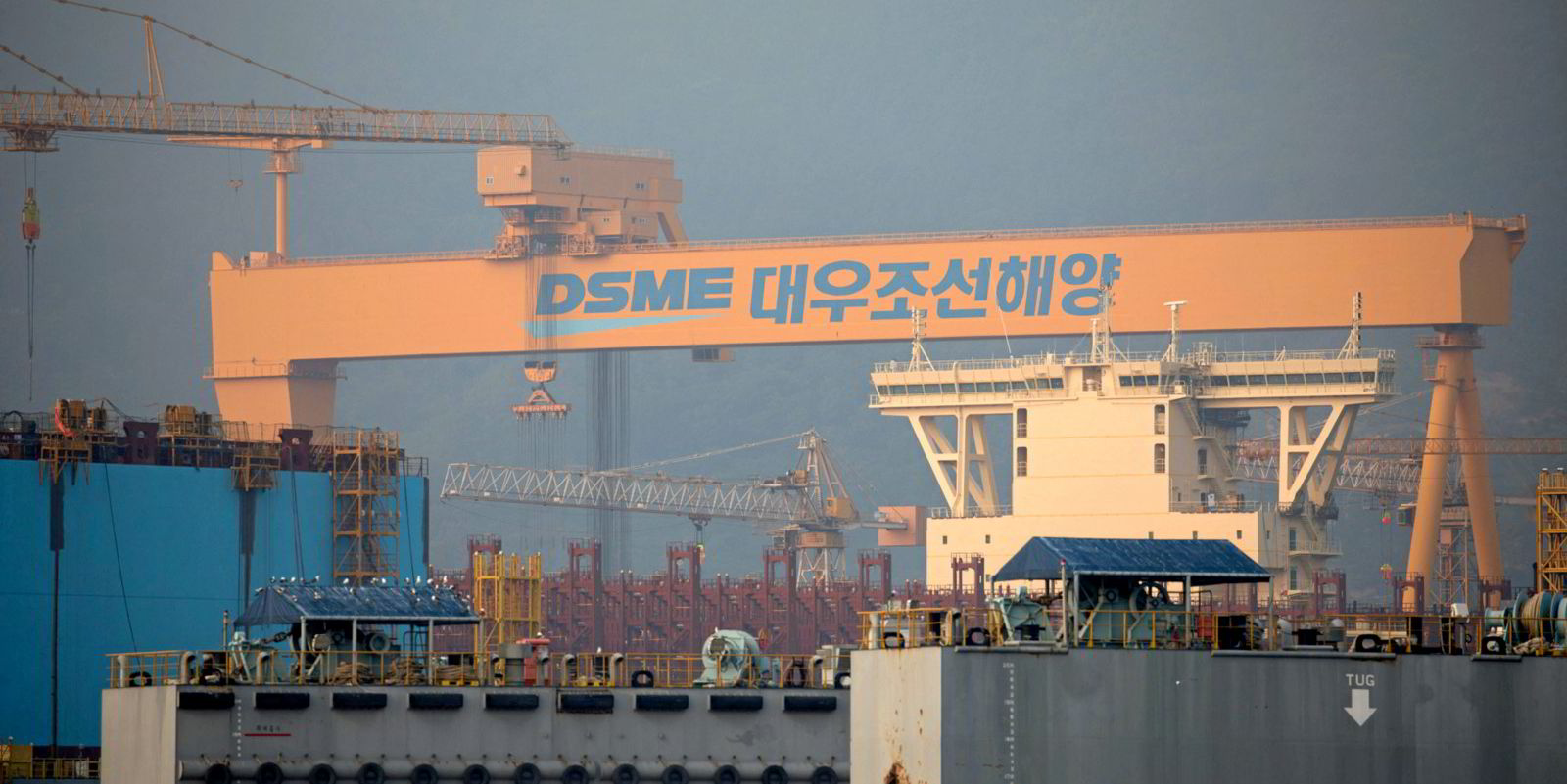Union negotiators representing dock workers at Felixstowe, Britain’s biggest container port, will meet employers in the coming days to try to avoid a damaging strike.
The Unite union reported that a 5% pay offer was turned down by 92% of workers in favour of strike action, with those who voted saying they are angry the offer would mean a pay cut in real terms.
Inflation is estimated to be running at 9.4% and could peak at 12% in the UK, driven by soaring energy prices, staff shortages and logistic disruption caused by Brexit.
The problems at Felixstowe in eastern England, which handles 45,000 containers per week, are not unique.
A series of 24-hour strikes have begun at Red Funnel, the ferry company that runs services from the mainland to the Isle of Wight, threatening to disrupt the celebrated Cowes yachting week.
Industrial action by train drivers and other rail workers across the country has brought many services to a standstill, including those to the Commonwealth Games in Birmingham.
There is also talk of doctors, civil servants and teachers taking industrial action — and even calls for a general strike.
This is not just a British phenomenon. German ports including Hamburg and Bremerhaven have been hit by a wave of strikes that have caused congestion at local and Dutch docks.
German labour union ver.di argues that the Central Association of German Seaport Companies should be building in an annual inflation adjustment system to help staff with a cost of living crisis at 58 ports and terminals.
“These port companies plan to leave their staff alone to deal with the consequences of rising prices. They are willing to see dockers’ wages go backward, eaten away by inflation,” said Maya Schwiegershausen-Guth, head of ver.di’s maritime section.
“We cannot accept this, especially after all that dock workers have done for the employers and the common good.”
German port employers said they have already put in a generous final offer that they described as the equivalent of a 12.5% pay increase, which is all they can do to bring the strikes to an end.
Europe’s largest economy is a major exporter of cars and parts, machinery and chemical products.
The German and British disruption coming ahead of the global liner season’s busiest period could drive up freight rates again as full and empty containers become marooned at docks.
Dock workers are aware that their pay risks stagnating while corporate financial results rise. German port operator Hamburger Hafen und Logistik reported a 164% increase in net profits to $115m last year. Felixstowe Dock & Railway Co, owned by Hong Kong-based CK Hutchison Holdings, made pre-tax profits of £61m ($74.m in current terms) in 2020 and paid out £99m in dividends.
These figures pale into insignificance compared with what liner companies are making. AP Moller-Maersk said this week it expects to earn EBITDA profits of $37bn for 2022, even though spot charter rates have fallen recently.
Some liner staff have been given bonuses, but a lucky executive such as shipbroking boss Andi Case at Clarksons has seen his remuneration package double year on year to $8.85m.
Some liner staff have been given bonuses, but a lucky executive such as shipbroking boss Andi Case at Clarksons has seen his remuneration package double year on year to $8.85m
Meanwhile, US President Joe Biden recently dropped into negotiations between employers represented by the Pacific Maritime Association and the International Longshore & Warehouse Union to try to stop a strike at Los Angeles, Oakland and other ports on the west coast.
More than 200 independent truck drivers disrupted the Port of Los Angeles on 18 July for a second time, protesting against the planned introduction of a “gig worker law”, which they say endangers their business.
South Korean truckers have been on strike and disrupted port shipments in recent weeks, arguing over pay and conditions. Contract workers withdrew their labour for more than a month at Daewoo Shipbuilding & Marine Engineering before settling for a 4.5% pay rise.
Seafarers, yard builders and dock workers provided a vital service during Covid and are being hit now by a severe cost of living squeeze, while some executives and their investors have done very well. It is time to share the largesse more widely.






